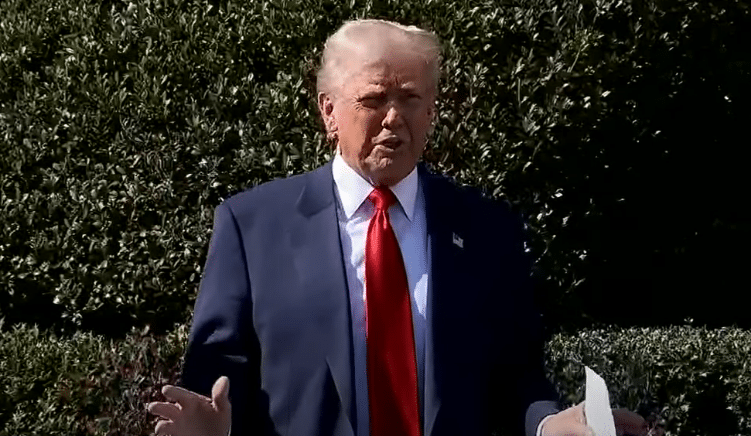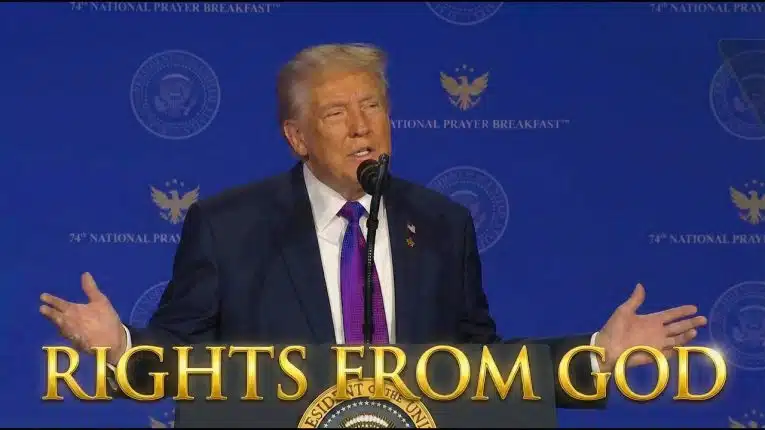
In their latest effort to combat President Donald Trump’s America First policy initiatives, the Democratic National Committee (DNC) is launching a “war room”, which appears to be nothing more than a propaganda machine aimed at criticizing and undermining the Trump Administration online.
According to a statement from newly anointed DNC Chair Ken Martin the “war room” will be “updating people in real time and around the clock” to combat the Trump administration’s “reckless agenda.”
Democrats using their mouthpieces in the mainstream media to misrepresent the facts and undermine conservatives is certainly nothing new – but what is telling about the DNC’s new “war room” is its focus on combatting conservative messaging in digital spaces like podcasts and TikTok.
The DNC is apparently waking up to the fact that Democrats have lost control of the cultural narrative, and a large part of why is because conservatives have been using decentralized digital spaces to share information in an increasingly successful way.
To regain control of the culture and recoup losses among young and independent voters – who largely distrust mainstream news – Democrats are launching their new “war room” to combat conservative voices in online spaces.
Party officials will be using “creative opposition tactics” and “aggressive daily messaging to counter the Trump administration” in digital spaces, according to an article from The Hill.
The fact that Democrats are launching a digital “war room” to attack Trump from a third angle – after bludgeoning him in the mainstream media and mainstream academia since 2015 – says a lot about the party’s plans to regain power.
Democrats are finally becoming aware of the dwindling power the mainstream media has over an increasing swathe of the American public, and they are realizing that dismissing conservative views on the nightly news is not an effective strategy any longer.
Not only are less Americans tuning in to traditional news, but trust in the mainstream media is at an all-time low. A Gallup poll from February found that trust in television news is second from the bottom in a list of seventeen institutions, with only Congress coming in lower in terms of trust. Americans mistrust the mainstream news by 44 points – 56 percent to 12 percent – according to the survey.
Polling has also consistently shown that the very groups Democrats were utterly shocked to relinquish to Republicans in 2024 – young people and minorities as well as independent voters – are the groups who are tuning out of mainstream news and finding their information in decentralized digital spaces.
Among young people, trust in mainstream news has plummeted over the past two decades according to the February Gallup poll, with a sharp decline after President Trump’s first term. Today, 31 percent of young Democrats and Democratic leaning independents hold a great deal or fair amount of trust in mainstream media, down from 50 percent in 2003. Among young Republicans, a mere 20 percent hold a fair or great deal of trust in mainstream media, down from 50 percent in 2003.
According to a 2024 survey from the American Press Institute and The Associated Press-NORC Center for Public Affairs Research, young people and minorities are more likely to get their news from decentralized sources including social media. The poll found that young people, Black voters, and Latino voters, are more likely to express a great deal of confidence in the reliability of social media as a source of election news, according to the Associated Press.
Given the Democratic Party’s catastrophic losses in the 2024 election among groups who seek their news from decentralized online spaces, and the decline in overall trust in the mainstream media, it is no wonder the DNC is hoping to insert itself into digital spaces with an anti-Trump narrative.
Whether Democrats are able to successfully message in decentralized digital spaces is difficult to predict. A few well-placed left-wing podcasts could certainly take off with the right angle, but generally speaking decentralized media ends up churning out more independent and conservative viewpoints. That is one reason Democrats are often crying to tech giants to implement censorship on their platforms, because conservative views are being elevated.
Take into account data scientist David Shor’s deep dive into the aftermath of the 2024 election that found a correlation between use of TikTok – the decentralized social networking app popular among Millennials and Gen Z – and voters moving toward conservatives.
Shor’s research, based on analysis of 26 million survey respondents from 8 million people found that users who cited TikTok as their news source swung nearly six percentage points away from Democrats in 2024, nearly three times the number of points Broadcast and local TV watchers swung.
While that is one study of app usage and political movement it does lend credence to the concept that decentralized digital spaces, free from top-down institutional narratives, are more likely to give birth to a healthy critique of mainstream culture.
Whether the DNC is able to successfully insert it’s anti-Trump agenda into digital spaces remains to be seen, but the entire premise of digital media is that it is decentralized. The voices of citizen-journalists carry just as much weight as those of institutional figureheads, and the people decide which ideas get shared and elevated.
Manzanita Miller is the senior political analyst at Americans for Limited Government Foundation.






